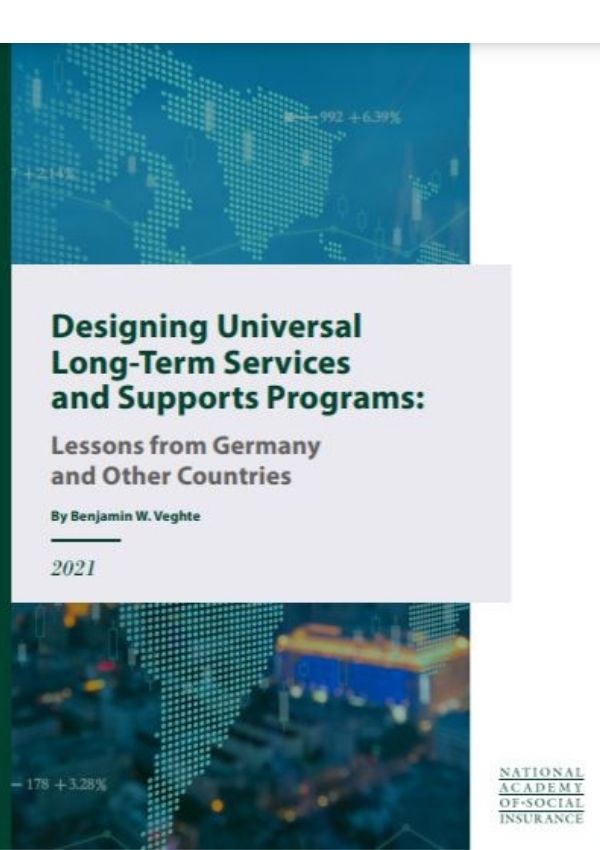Elaine Weiss, Director of Policy
Shifting the perception of caregiving as a private matter
President Biden’s State of the Union was noteworthy for several reasons. It called attention to the fragility of democracy as exemplified by Russia’s invasion of Ukraine at a point when democracy here at home feels very shaky. In stark contrast to polling suggesting Biden’s lack of popularity, the speech got high marks among those who watched and listened. This may be due in part to how the speech cemented the shift of caregiving movement from an issue for women to deal with at home to a problem the country can address through social insurance programs, namely Medicare and Medicaid.

Caregiving – whether for babies and young children, family members with disabilities, or ailing spouses and older parents – has long been seen in the United States as a private matter, rather than a public policy issue. The major exception to this rule was when a large share of white women suddenly had to join the workforce during World War II, when their husbands and sons went off to fight and factories would have been shuttered without a replacement workforce. As soon as those men returned, women were sent back home and the temporary public child-care that had supported them rescinded. Throughout U.S. history, women of color have disproportionately labored as caregivers, poorly paid or not paid at all for critical but largely invisible work. Shutting caregiving in the private box has consigned it to being a “women’s issue” and thus, a neglected one.
High costs of inaction on caregiving policy reform
As a growing chorus of voices – economists, policymakers, advocates, and parents themselves of both genders – point out, however, this strategy does not work. It’s a mess, regardless of the perspective you bring to bear. Economists point to the substantial loss of workforce numbers, efficiency, and effectiveness. Policymakers note that virtually every other country on earth treats caregiving as a public policy issue, and that rather than destroying their societies, it has strengthened them. Advocates call out the impossible choices forced on parents of young children, children of elderly parents, and those who care for them by a system that makes paying for care out of reach while depriving its workers of a living. And parents have been voting with their feet, so to speak – putting off having children for more years and, recently, not having them at all because they cannot afford to do so.
The technical term for this mess is market failure. Paying for care privately is innately so expensive that most people cannot afford it. At the same time, the amounts they can afford to pay are so low that those who provide the care cannot support themselves. It is precisely this type of widely shared risk that social insurance is designed to protect against. A recent brief on international approaches to the provision of universal long-term services and supports (LTSS) authored by Academy Member, Benjamin Veghte, Director of the Washington State Cares Fund, offers options for policymakers to consider.

As the Academy’s Universal Family Care Study Panel report lays out, we all have a stake in ensuring access to quality, affordable care. And as the COVID-19 pandemic starkly illustrated, the costs of a weak early care infrastructure not only drive mothers out of the workforce, they cause enormous household stress. And our heavily private, poorly regulated elder care infrastructure not only kept families from visiting cousins with disabilities and grandparents, it also put unimaginable strain on caregivers and appears to have caused a huge number of avoidable deaths.
While Biden notably pulled back on some of the policy priorities that defined his and Vice President Harris’ campaign and their first year in office, his strong, sustained emphasis on caregiving made clear the evolution of this issue. It is not just a priority for the most progressive members of Congress, or one that should be pushed aside in a challenging election year. Rather, it’s a hugely popular policy that is gaining momentum across the ideological spectrum. The President may not have explicitly mentioned Women’s History Month in his speech, but elevating caregiving alongside renewed national unity, tackling the pandemic, and strengthening our democracy feels like a pretty nice nod.

